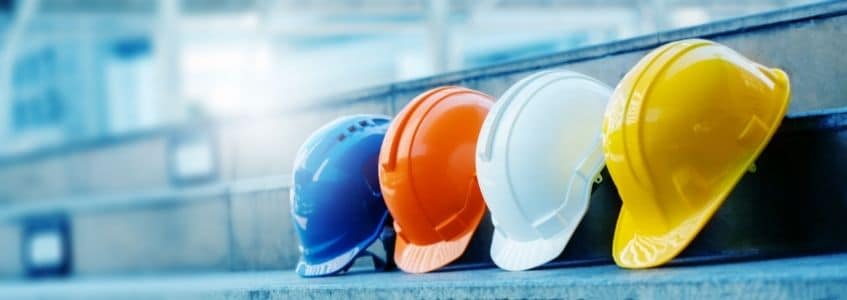It's incredibly important to create a safe work environment and protect your pipeline employees. The Canadian pipeline industry comes with its fair share of potential dangers, so making workers aware of the risks and taking necessary steps to stay safe is important. Learn more about the common hazards that Canadian pipeline construction workers may face including excavation and trenching hazards to falls, handling hazardous materials, and risks associated with equipment. Industrial Compliance & Safety's goal is to shine a light on these hazards and provide essential safety tips to ensure that workers stay well-protected on the job.
Common Hazards in Canadian Pipeline Construction
Canadian pipeline construction workers face a few of these common hazards on the job site:
- Excavation and Trenching Hazards: Pipeline construction workers face significant risks of cave-ins and utility strikes. The unstable nature of soil can lead to potentially fatal accidents. To mitigate these hazards, proper soil analysis is essential to determine soil stability. Additionally, shoring techniques should be employed to prevent trench collapses. Workers need to follow protective measures, such as wearing adequate personal protective equipment (PPE) and implementing confined space procedures.
- Falls and Working at Heights: Working at elevated heights introduces a host of dangers in pipeline construction. Falls can result in severe injuries or even fatalities. Workers must be aware of the risks associated with working at heights and take appropriate safety measures. Fall protection systems, such as harnesses and guardrails, should be utilized to prevent falls. Regular inspections and maintenance of equipment used for working at heights are also crucial to ensure their reliability and safety.
- Hazardous Materials Handling: The transportation and handling of hazardous substances pose significant risks to workers in pipeline construction. Exposure to toxic chemicals or flammable materials can lead to serious health issues or accidents. Proper labeling, storage, and handling protocols must be strictly followed to minimize the potential for incidents. Personal protective equipment (PPE), such as gloves, goggles, and respiratory masks, should always be worn when working with hazardous materials.
- Equipment-Related Hazards: Common equipment hazards in pipeline construction include machinery malfunctions and struck-by incidents. Regular inspections and maintenance of equipment are paramount to identify and address any potential issues promptly. In addition, comprehensive operator training should be provided to ensure workers understand proper equipment operation and safety protocols.
Safety Precautions for Pipeline Construction Workers
Safety should always be the top priority in Canadian pipeline construction. The potential hazards in this industry are real, but by understanding and implementing the necessary safety precautions, employers and workers can minimize risks to create a safer work environment. From excavation and trenching hazards to falls, handling hazardous materials, and equipment-related risks, each hazard requires careful attention and adherence to proper protocols.
Providing comprehensive training and education, equipping workers with the appropriate personal protective equipment (PPE), conducting thorough job site assessments, and fostering effective communication and reporting, can help to ensure the well-being of pipeline construction workers across Canada.
- Training and Education: Comprehensive workplace safety training is necessary for all pipeline construction workers. It is essential to educate employees about hazard recognition and safe work practices. By providing thorough training, workers will have the knowledge and skills needed to identify potential hazards and take appropriate precautions to mitigate risks. Ongoing education and refresher courses should be implemented to ensure workers stay up to date with the latest safety protocols.
- Personal Protective Equipment (PPE): Properly equipping pipeline construction workers with essential personal protective equipment (PPE) is vital. Hard hats, gloves, safety glasses, and other specialized gear should be worn at all times to protect against head injuries, hand injuries, and eye injuries. It is beneficial to ensure that PPE fits correctly, is used appropriately, and is regularly maintained for optimal effectiveness.
- Job Site Assessments and Safety Plans: Thorough job site assessments are paramount in identifying potential hazards specific to each worksite. This includes evaluating soil conditions, terrain, nearby utilities, and other environmental factors. By conducting these assessments, potential risks can be identified and addressed proactively. Developing site-specific safety plans that outline protocols and precautions based on the assessment findings is equally important. These plans should outline procedures for safe excavation, fall protection, handling hazardous materials, and more.
- Communication and Reporting: Effective communication is key to maintaining a safe working environment. Clear and open lines of communication among workers, supervisors, and management ensure that everyone is aware of hazards and safety procedures. Encouraging workers to report any safety concerns promptly is crucial for addressing potential risks before they escalate. Implementing reporting mechanisms that allow workers to report concerns anonymously can help create a culture of safety and accountability.
Benefits of Working With a Safety Compliance Consultant
Working with a safety compliance consultant can offer Canadian general contractors significant advantages. These consultants have in-depth knowledge of the regulatory landscape and industry-specific requirements within Canada, ensuring that contractors stay compliant with local laws and regulations.
Workplace safety consultants can conduct comprehensive audits and assessments, identifying potential hazards and areas for improvement specific to the Canadian construction industry. Implementing their recommendations helps general contractors enhance safety protocols, reduce workplace accidents, and mitigate legal and financial risks.
Safety compliance consultants can also provide customized training programs that align with Canadian standards, equipping contractors and their employees with the necessary skills and knowledge to maintain a safe working environment. Partnering with a safety compliance consultant specialized in Canadian general contracting provides contractors with the confidence that they are effectively addressing safety concerns and prioritizing the well-being of their workforce within the unique context of the Canadian construction industry.
Work With Industrial Compliance & Safety
Industrial Compliance & Safety is a Prequalification assistance company providing global safety compliance services in Canada, the USA, Mexico, the Caribbean, South & Central America, Europe, Asia, Africa, and Australia/New Zealand. With over 20 years of experience in the industry and business, our team can provide a unique experience and superb service to our clients. Our experts know the ins and outs of ISNetworld®, Avetta®, and all the other large and small certification systems out there. We are ready to work for you and provide a great service that so many of our other clients have experienced themselves. We are committed to helping your business achieve contractor compliance! Contact Industrial Compliance & Safety to learn more about our workplace safety compliance solutions.
Ready To Get Compliant Today?
Call us or complete the form below!





